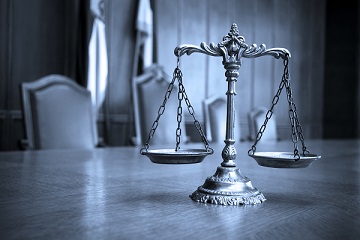 When Do You Need a Professional Licensing Attorney?
When Do You Need a Professional Licensing Attorney?
Any time you are at risk of losing your professional license, you should not hesitate to call an attorney to represent you. Our attorneys have represented professionals in all manner of situations, including the following:
- Obtaining and renewing a license. Many professional licensing organizations have complicated application and renewal processes, with strict deadlines and a requirement for completion of certain training programs and other hoops to jump through. Our experienced team can make sure your application is complete the first time and that issues with renewal are resolved in a timely manner to avoid any interruption in your ability to earn a living.
- Appealing denials. If you were denied a license by your regulating board, you can request a hearing with the Department of Labor (DOL) to review their decision and fight for a reversal. You are entitled to an attorney when you appear before the DOL, and we can prepare an appeal on your behalf.
- Defending against complaints or sanctions. If an individual has filed a complaint against you with the DOL, or your regulating board has issued a Notice of Proposed Action for violating professional standards, you have a right to a due process hearing before the DOL. Our attorneys are experienced in these hearings and will present evidence in your defense.
- Any other issue. If you have any questions or concerns about defending your professional license, our attorneys can answer them.
As licensed professionals ourselves, we understand how important it is to you to protect your license and your livelihood. We take professional licensing defense cases very seriously.
Types of Licensees We Represent
The independent spirit of Montanans is reflected in the scope and variety of licensed professionals working throughout the state. While these professions may vary widely in the nature of the work, when it comes to your legal rights relative to your professional license, there are a lot of similarities. We have successfully defended the licenses of many professionals, and accept cases from:
- Appraisers
- Hunting & fishing guides and outfitters
- Contractors
- Stylists and barbers
- Teachers
- Real estate agents
- Attorneys
- Nurses
- Doctors
- Therapists
- Any other professional in Montana
If you are uncertain about your need for an attorney, call to talk to one of our experienced team members. We will help you understand your rights and whether our attorneys can help.
Schedule an Appointment With Our Professional Licensing Defense Attorneys
Our team approach to handling your licensing issue means we can respond quickly and efficiently to your needs. We take pride in our personal touch while helping you through what can be a very frustrating time.
If you’re looking for a professional licensing defense attorney who is client-centered and detail-oriented, contact the Silverman Law Office for a consultation. We believe that our clients benefit from our years of experience in this niche area of the law. We look forward to speaking with you about our personalized approach to your defense.
